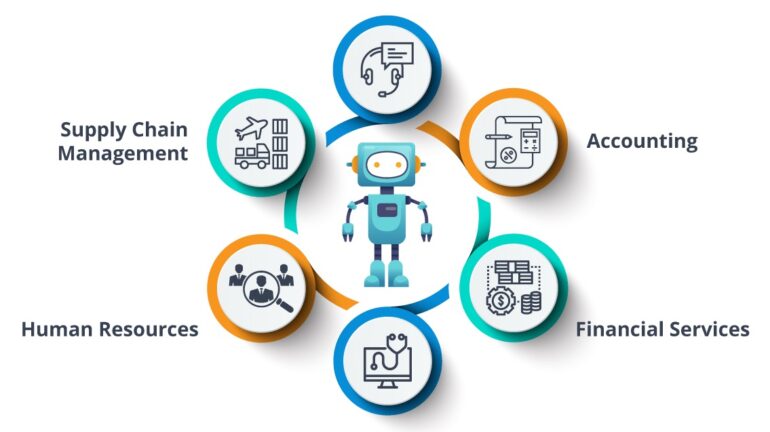
In today’s data-driven world, extracting valuable insights from vast online sources is crucial for businesses of all sizes. But manual data scraping can be tedious, time-consuming, and prone to errors. That’s where Robotic Process Automation (RPA) steps in as a game-changer.
The first rule of any technology used in a business is that automation applied to an efficient operation will magnify the efficiency. The second is that automation applied to an inefficient operation will magnify the inefficiency.
Bill Gates
Benefits of RPA for Data Scrapping
Enhanced Accuracy: Say goodbye to human errors! RPA bots follow pre-defined rules, ensuring consistent and accurate data extraction every time.
Scalability on Demand: Need to scrape data from multiple websites or platforms? No problem! RPA scales effortlessly to handle large datasets efficiently.
24/7 Availability: Bots work tirelessly, day and night, giving you uninterrupted access to the data you need.
Compliance Adherence: Set up RPA bots to comply with data privacy regulations and website terms of service, giving you peace of mind.
But the benefits don’t stop there:
-
Improved Customer Insights: Scrape social media data to understand customer sentiment, preferences, and buying behavior.
-
Competitive Analysis: Gather information about your competitors’ products, pricing, and marketing strategies.
-
Market Research: Extract valuable data from industry reports, news articles, and social media trends.
-
Price Monitoring: Track competitor pricing in real-time to optimize your own pricing strategy.

Ready to unlock the power of data scraping with RPA? Share your thoughts and experiences in the comments below!
Frequently Asked Questions (FAQs)
1. How is RPA different from traditional data scraping?
Traditional data scraping relies on code. Conversely, RPA uses a “bot” to mimic human actions. The RPA bot interacts with websites and applications just like a person would, making it highly versatile for complex data extraction.
2. What are the main benefits of using RPA for data scraping?
RPA offers significant advantages. It dramatically increases speed and accuracy. An RPA bot can work 24/7 without making human errors. This leads to higher efficiency and better quality data.
3. Is it legal to scrape data using RPA?
he legality of data scraping is complex. It depends on the data being collected, its intended use, and the website’s terms of service. Scraping publicly available, non-copyrighted data is generally acceptable. However, you must always respect privacy laws and avoid scraping sensitive or personal information.
4. Can RPA scrape data from all sources?
RPA is exceptionally flexible. It can extract data from websites, desktop applications, PDFs, and even scanned documents. The technology’s ability to handle unstructured data through OCR is very powerful.
5. What are some real-world use cases for RPA data scraping?
Businesses use RPA for many tasks. These include competitor price monitoring, lead generation, and market research. It is also used for automating report generation and customer data updates.
Your Turn to Automate!
e have explored the incredible potential of using RPA for data scraping. This technology can transform how your business operates. It saves countless hours and resources.
What manual, data-heavy process is holding your business back? Can you identify a task that could benefit from RPA automation?
Share your thoughts or questions about data extraction in the comments below. Let’s discuss how we can all embrace the power of automation.
#RPA, #DataScraping, #RoboticProcessAutomation, #DataAutomation, #DigitalTransformation, #BusinessAutomation, #TechTrends, #AI, #BigData, #DataExtraction, #ProcessAutomation

88jl11login Mar 31, 2024 at 05:25 am
Alright, checking out 88jl11login, hoping for a quick login process and a good time! Let’s do this. Good luck! 88jl11login
crash7game Mar 31, 2024 at 05:25 am
Crash7game is my go-to for a quick thrill. The gameplay is slick and it’s super addicting. Seriously, give it a try, you won’t regret it! My new fav game. Get your crash on crash7game.